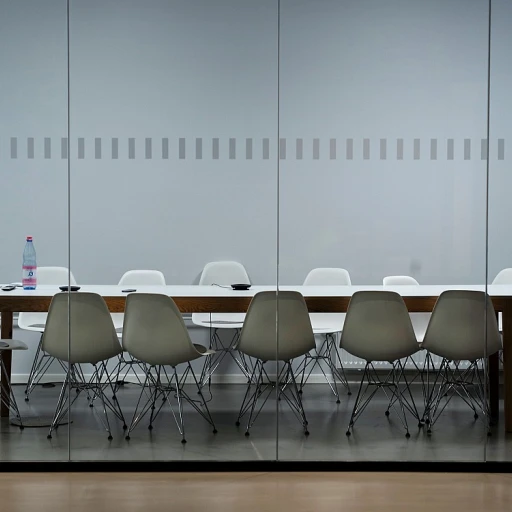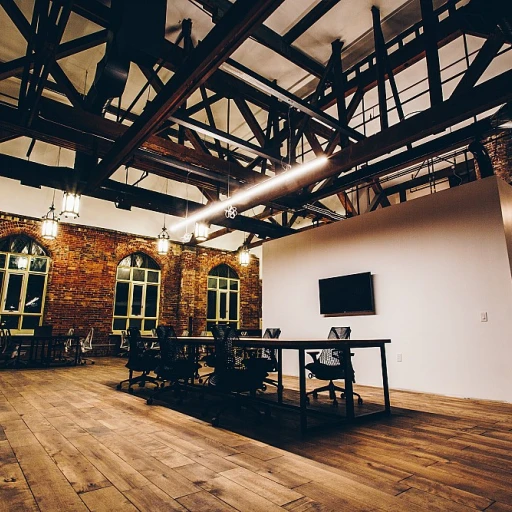Understanding the Role of a Daily Desk Calendar
Unpacking the Importance of Desk Calendars
In the bustling environment of a UK office, a daily desk calendar can serve as an essential tool for maintaining order and efficiency. These calendars, whether a simple desk pad or a more elaborate desktop planner, offer more than just a way to track the days. They provide a tangible means to organize tasks, set reminders, and visually manage time.
Desk calendars come in various forms, such as the traditional box calendar or the sleek desktop calendar. Each type offers unique features that cater to different needs, from the academic year to the calendar year. The choice between a daily desktop and a large monthly format can significantly impact how effectively you manage your schedule.
While digital tools are prevalent, the tactile experience of flipping through a perpetual calendar or jotting notes on a desk pad can enhance focus and retention. A well-chosen desk calendar can help you enhance office decor while keeping you organized.
As you explore further, you'll discover the myriad benefits of integrating these calendars into your daily routine, as well as tips for selecting the right one for your office. Stay tuned for insights on overcoming common challenges and real-world examples of successful calendar implementations in UK companies.
Benefits of Using a Daily Desk Calendar in the UK Workplace
Maximizing Efficiency Through Organised Time Management
Incorporating a daily desk calendar into your workspace in the UK can significantly enhance your time management, offering several important benefits. The use of a daily desktop or desk calendar promotes structured interaction with daily tasks and schedules, allowing for a clearer and more organised view of both short-term and long-term goals. A critical advantage is the ease with which one can manage day-to-day activities. The simplicity of having a planner or pad calendar on your desk helps in scheduling tasks more efficiently. A large monthly or small monthly desk calendar can provide a bird's-eye view of upcoming events, deadlines, and important meetings, facilitating forward-planning and reducing the likelihood of last-minute rushes. By adding a daily calendar to your routine, you can effectively track progress and stay on top of fluctuating priorities. Box calendars and desktop planners introduced annually or even as part of the academic year can seamlessly integrate into your current workflow, providing a daily focus and reinforcing weekly objectives. Leveraging these tools helps workers in UK offices maintain productivity while keeping stress levels in check. Daily desk calendars can offer cost-effective solutions as well. With options to compare prices and find the best sales, investing in an item that saves time translates into long-term financial savings. Many calendars are detachable and come with calendar refills, ensuring the product can be continually updated year after year. By choosing products tailored to your workspace, such as perpetual calendars or willow creek variants, you ensure that your office remains flexible and well-organised at little extra cost. To further optimise the use of daily desk calendars in the workplace, explore more on understanding the dynamics of the office manager role in UK companies (source: Understanding the Office Manager Job Scope in UK Companies). This can provide additional insights into how structured scheduling and task management can enhance workflow effectiveness. Deploying a calendar item like a monthly desk or day calendar in a shared office space can also promote a culture of awareness and punctuality, reducing instances of missed appointments and meetings. As daily entries are made starkly visible, employees are more likely to engage with their own planning, saving time and enhancing productivity."Choosing the Right Daily Desk Calendar for Your Office
Factors to Consider When Selecting a Desk Calendar
Choosing the best daily desk calendar for your office environment involves carefully weighing several crucial aspects. Not only should the calendar aesthetically match your workspace decor, its functionality is equally important. A wide range of calendars is on the market, catering to different needs and preferences, so understanding what works best for your team is essential.
Size and Format
The size and format of the desk calendar are primary considerations. If your workspace is compact, a smaller desktop calendar or pad calendar might be the ideal choice, fitting seamlessly on any desk without taking up excessive space. On the other hand, large monthly planners are suitable if you prefer ample room for jotting down daily appointments and notes.
Functional Features
Another key factor is the calendar's functional features. Some calendars come with extra utility, such as a box calendar that can double up as a storage solution or a calendar with a perpetual feature allowing year-round use without the need for a calendar refill. These features can save add to their utility, making them a cost-effective choice for the office.
Price Considerations
Price is undoubtedly an important factor. Compare different planners and find the one that offers the best value. While it might be tempting to go for the cheapest item on sale, it’s important to consider the quality and durability of the calendar, ensuring it can withstand daily use throughout the academic or calendar year.
Brand Diversity
Finally, explore different brands that are known for quality desk accessories like Willow Creek. Often, well-established brands offer a range of options catering to diverse office needs. It’s wise to view reviews and ratings to gauge the reliability and functionality of the calendar.
By keeping these factors in mind, you can easily find a daily desktop calendar tailored to enhance workflow and improve time management among your team. If you're interested in exploring different power dynamics in project management, check out this comprehensive guide.
Integrating a Daily Desk Calendar into Your Office Routine
Seamlessly Incorporating a Daily Desk Calendar into Your Workday
Integrating a daily desk calendar into your office routine doesn't have to be overwhelming. Whether you're employing a willow creek box calendar or a monthly desk pad, using these tools effectively is key to reaping their full benefits.
Firstly, select a comfortable spot for your desk calendar. It should be a place where you can easily view it every day, such as next to your desktop or within arm's reach on your desk. This ensures you can quickly add notes or appointments and compare daily tasks without disrupting your workflow.
Consider the price versus utility of your chosen calendar type. A perpetual calendar might seem like a higher initial investment, but it saves you from purchasing new items each year. That said, regularly updated calendars like desk pad calendars often provide fresh layouts and additional features tailored to the academic year.
A great way to fully integrate your daily desk calendar is by designating specific times in your schedule for interaction. For instance, during your morning routine, take a moment to review the day's agenda. Regular check-ins enable you to stay on top of appointments and deadlines.
For those who work with larger teams, consider leaving a section of the calendar free for team notes or updates, utilizing it as a collaborative tool. This way, it not only aids in personal time management but also serves as a shared resource for team coordination.
Remember, the most effective use of a desk calendar adapts to your workplace needs. By thoughtfully incorporating these versatile tools, you enhance productivity and maintain an organized work environment throughout the calendar year.









